The Zyxel Armor G5 AX6000 12-Stream Multi-Gigabit Wi-Fi 6 Router (model NBG7815) is like a concept car. It has enough style and power to be a promising networking machine. It's great to look at to boot.
On the inside, though, it's lacking. Even severely so. Many standard features available in other similarly-specced routers of its $350 price range are not there. On top of that, it's pretty buggy, especially the USB Application, which barely worked in my tests.
That said, if you're looking for a Wi-Fi 6 router with multiple Multi-Gig ports (2.5Gbps and 10Gbps), an eye-catching design, and fast Wi-Fi performance, the new Armor G5 will deliver for the most part.
There's hope that it'll get better over time via firmware updates, but for now, you might be disappointed if you expect to have a real-world experience matching the router's look and hardware specs.

Zyxel Armor G5: A work in progress with impressive hardware specs
The Armor G5 is the first Wi-Fi 6 router from Zyxel. So it's a bit late to the game. It seems the networking vendor has tried to make it "worth the wait" by giving it a rather radical design and tons of high-end hardware specs.
A different look
The new routers come in a clamshell shape with rounded corners and edges all around. On top, it has a middle ledge running from the front to the back that dubs as a color-changing status light, somewhat a mini version of the one on the Asus RT-AX82U.
By default, this light is quite bright, but you can use the web interface to dim it or turn it off completely, which is always a good thing.
On the bottom, the router has a rounded base with a small footprint proportionally to its body. This base keeps the router about 1/3 of an inch from the ground to help with ventilation.
The problem is that the base also causes the device to be less stable, especially when you plug heavy network cables into its ports.
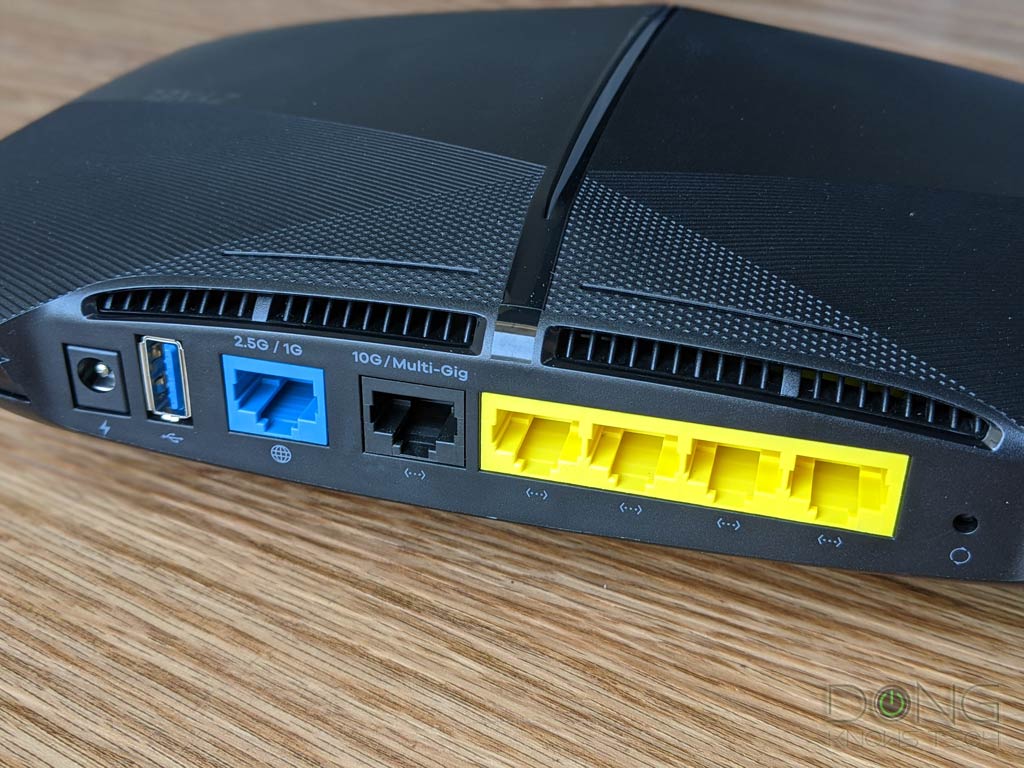
Two multi-gig ports
And these ports are where it's at. Located on the back of the router, they are proof Zyxel means business. The G5 is the second Wi-Fi 6 router with two multi-gig ports after the Asus RT-AX89X.
Indeed, it has a 2.5Gbps WAN port and a 10Gbps LAN port. Note, though, that these ports only work in their designated roles. Unlike those from Asus or Netgear, you can't change the G5's network ports between the WAN and LAN functions via software. The Zyxel has no Dual-WAN or Link Aggregation, either.
Nonetheless, having these ports means the router can deliver faster-than-gigabit speeds on both WAN and LAN sides. That's always an exciting bonus.
Other than that, it also has another four Gigabit LAN ports and a USB 3.0 port. This USB port plus the 10Gbps LAN port means you can rightfully expect the G5 to deliver crazy fast network-attached storage (NAS) speed when coupled with a portable drive.
Not to rain on your parade, the router didn't turn out to be a viable mini NAS server in my testing - more below.
Zyxel Armor G5: Detail photos
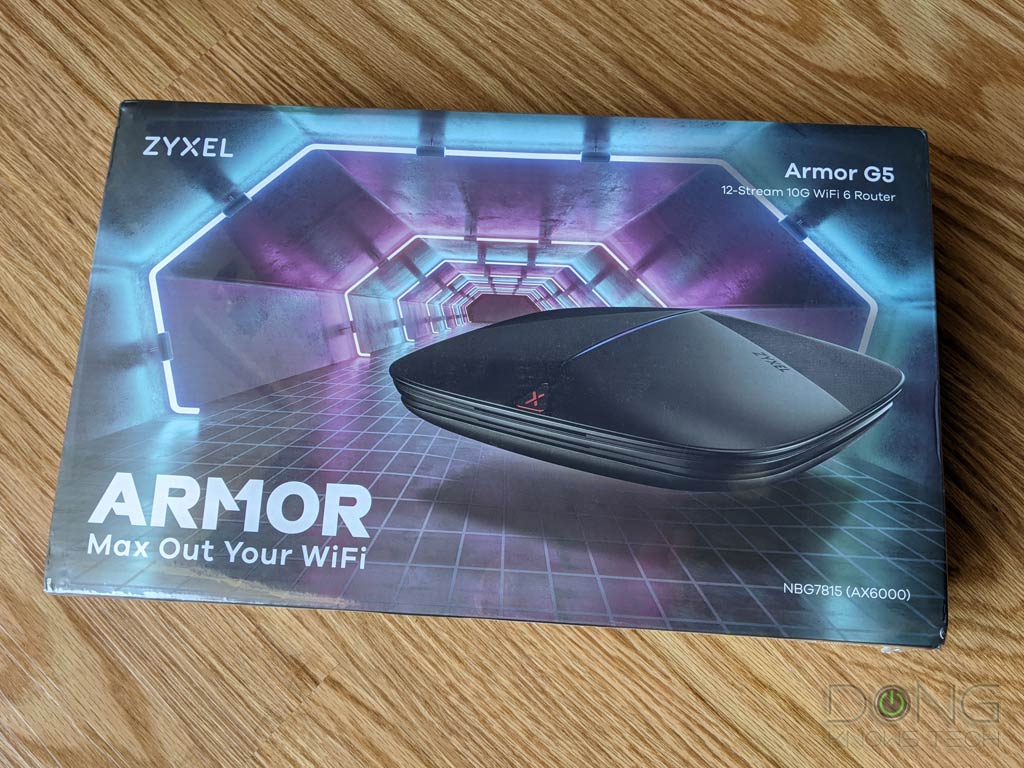
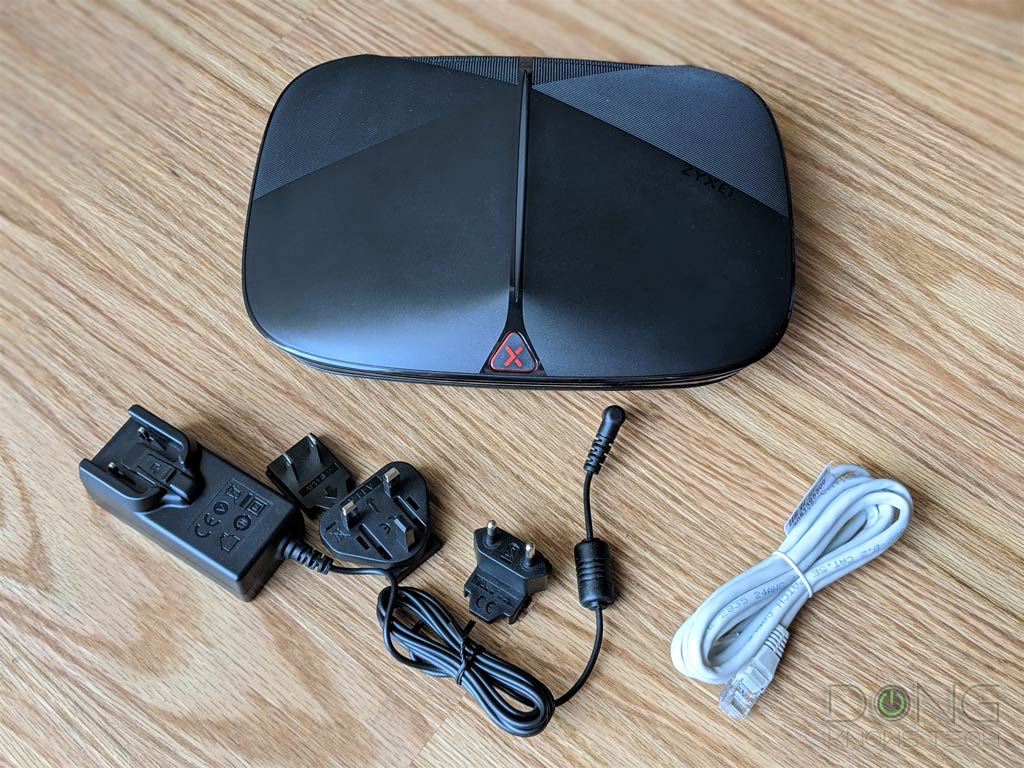
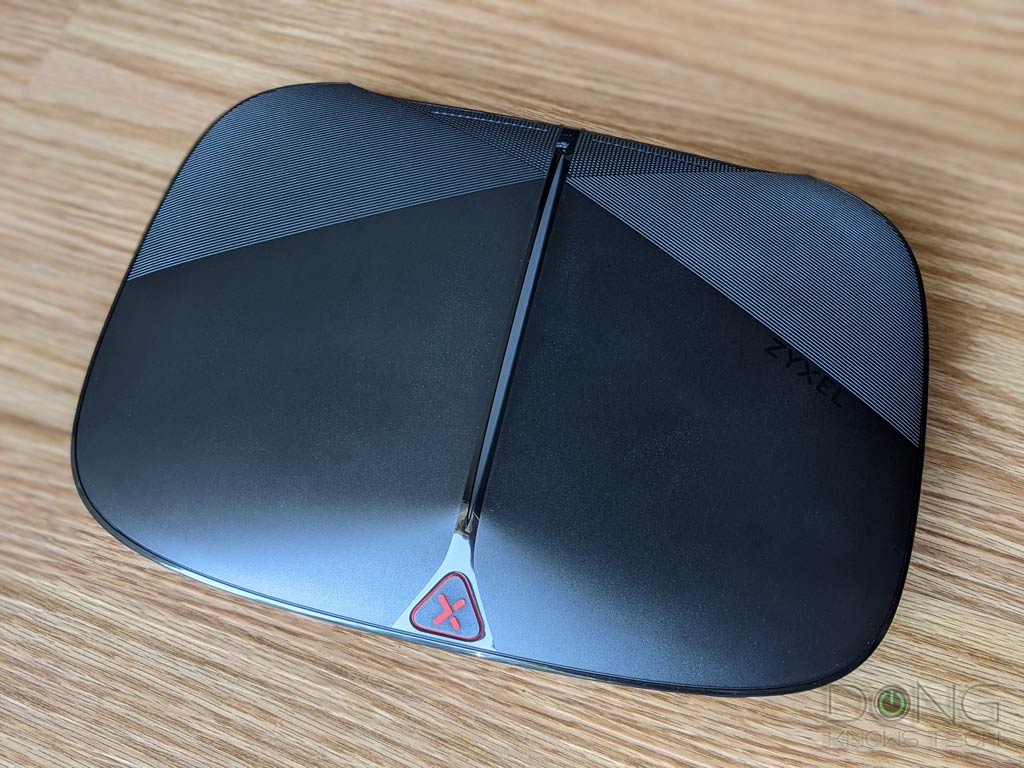
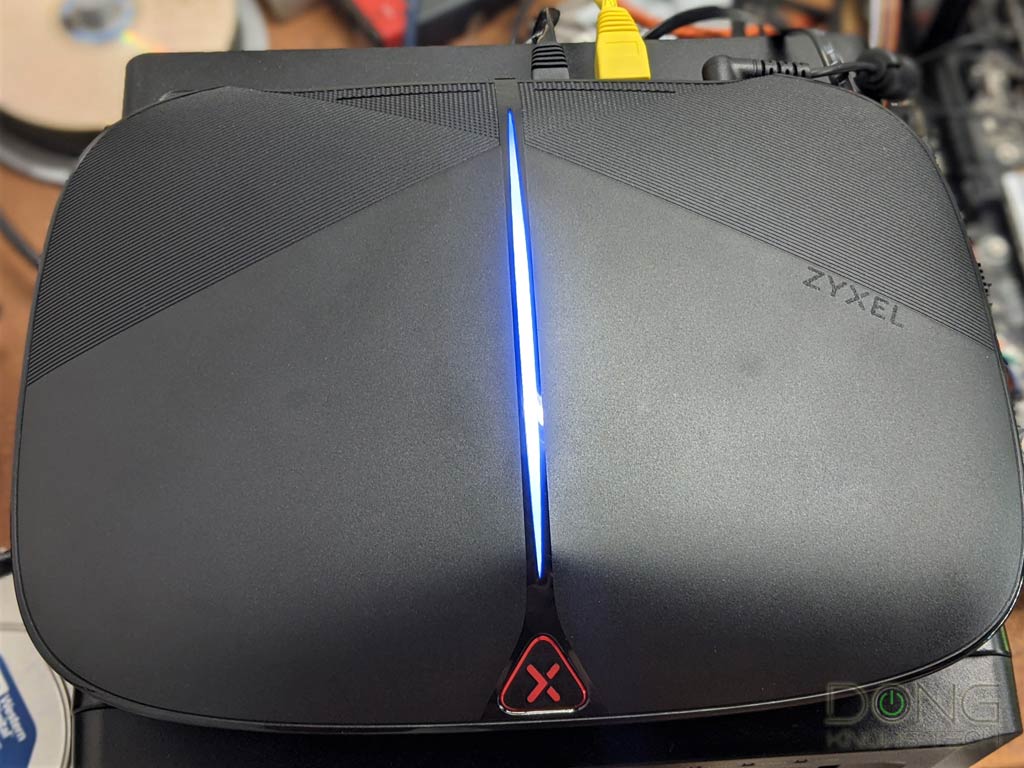
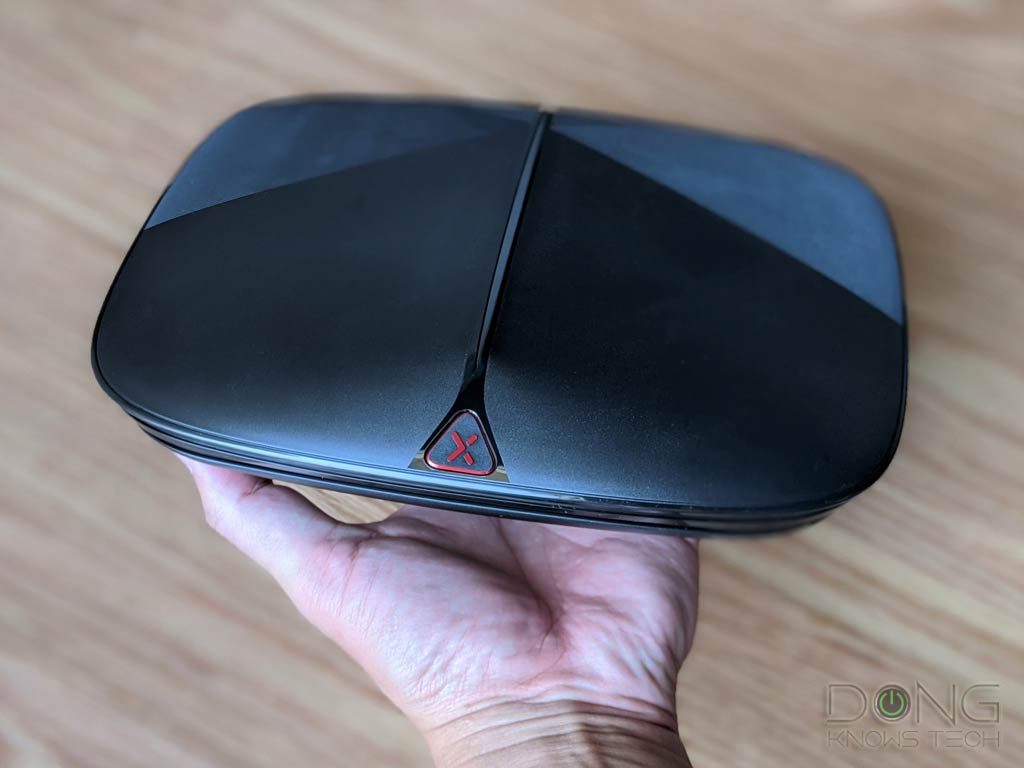
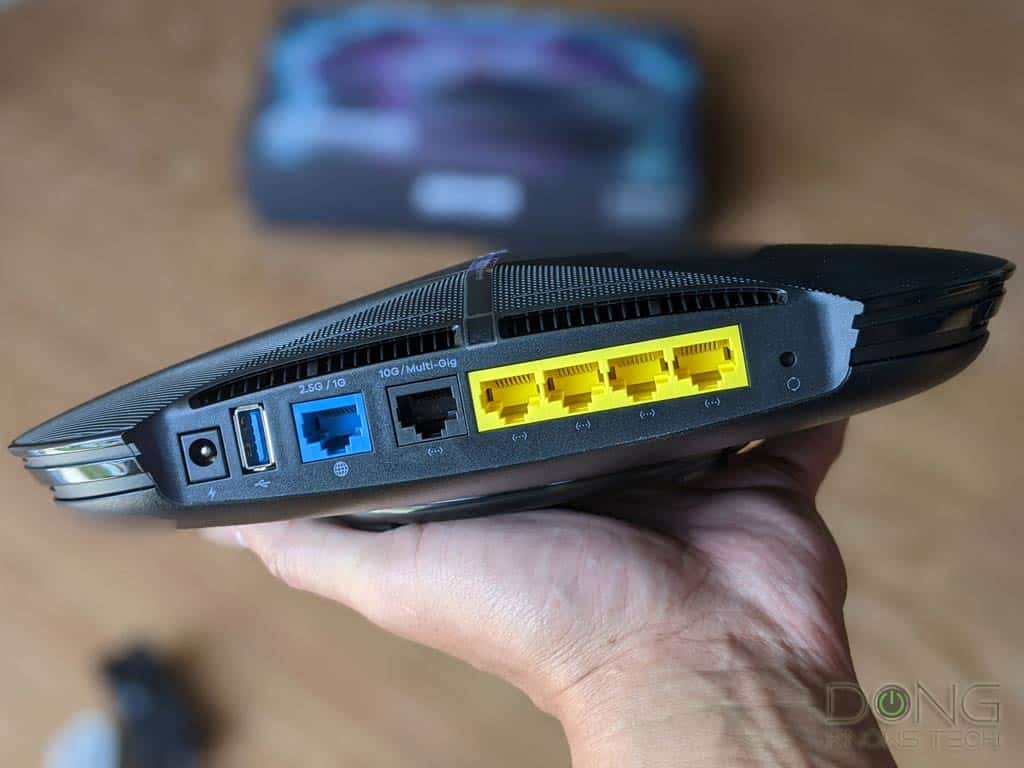
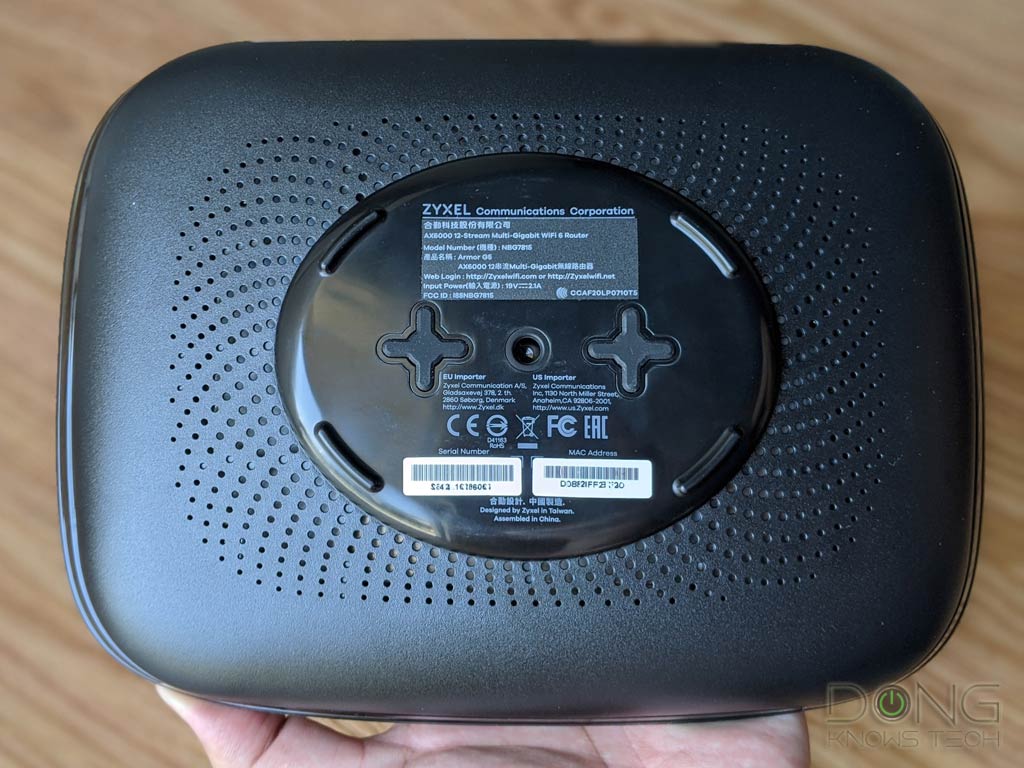
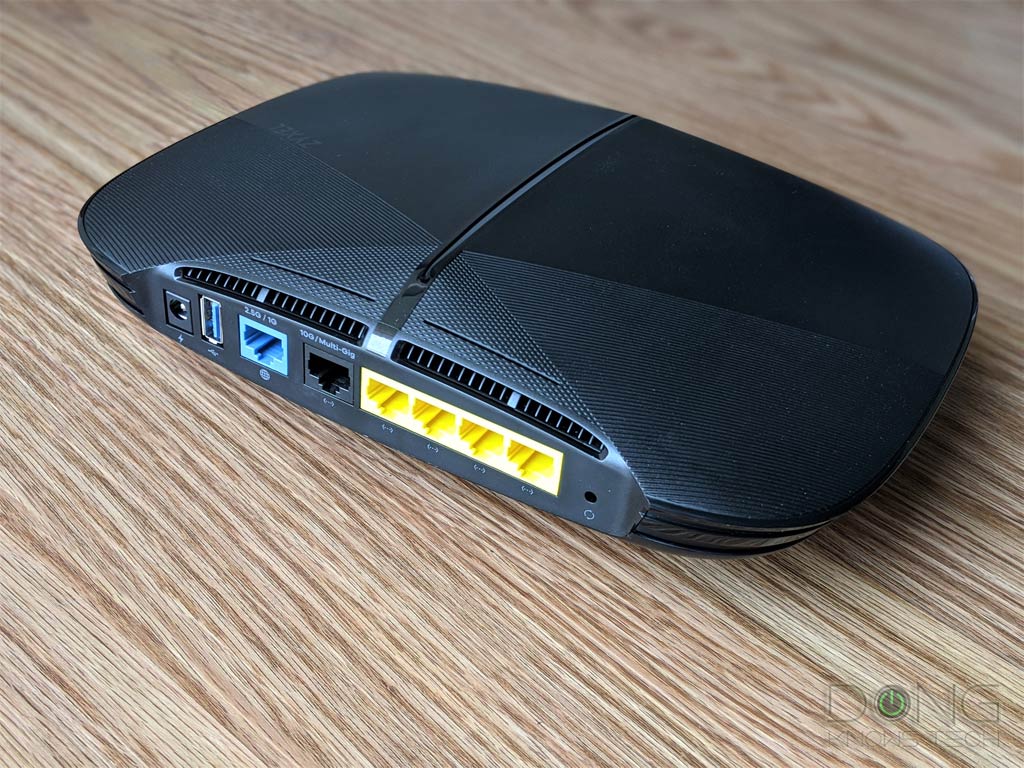
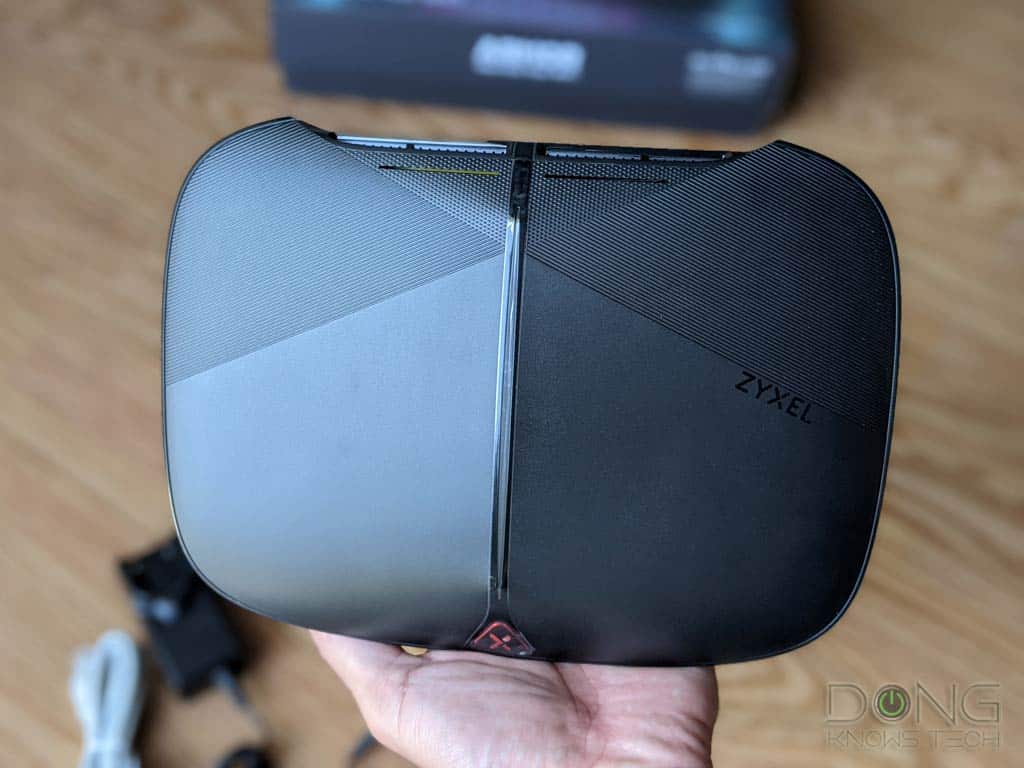
Zyxel Armor G5: Hardware specifications
The Armor G5 is the direct competitor to the Asus RT-AX88U or the Netgear RAX120 in hardware specs. It does have the most flash memory (4GB) compared with the other two and is the only one with two multi-gig network ports.
The G5 is also the only one without eternal antennas. Instead, per Zyxel, it comes with 13 internal ones.
| Name | Armor G5 AX6000 12-Stream Multi-Gigabit Wi-Fi 6 Router |
| Model | NBG7815 |
| Wi-Fi Technology | Dual-Band Wi-Fi 6 (802.11ax) AX6000 |
| 2.4GHz Wi-Fi Specs | 4x4 Wi-Fi 6: up to 1200 Mbps |
| 5GHz Wi-Fi Specs | 4X4 Wi-Fi 6: up to 4804 Mbps |
| Backward Compatibility | 802.11a/b/g/n/ac |
| AP Mode | Yes |
| Mesh-ready | No |
| 160MHz Channel Support | Yes |
| Gigabit LAN Ports | 4x Gigabit LAN |
| Multi-Gig Ports | 1x 2.5Gbps WAN, 1x 10Gbps LAN |
| Link Aggregation | No |
| Dual-WAN | No |
| USB | 1 x USB-A USB 3.0 ports (storage, printer) |
| Mobile App | Zyxel Armor |
| QoS | No |
| Parental Control | Yes (Internet blocking only) |
| Processing Power | 64-bit quad-core 2.2 GHz, 4GB Flash, 1GB RAM |
| Built-in Online Protection | No |
| Dimensions | 9.8 x 7.2 x 2.6 inch (248 x 182 x 66 mm) |
| Weight | 2.2 lbs (1 kg) |
Simple setup process
Like most other Zyxel routers I've worked with, the G5 comes with a web interface that you can access via its default IP address which is 192.168.123.1. From a connected computer, point a browser to this address, and everything is self-explanatory.
There's a little extra step with the G5, however. During this initial setup process, you'll be asked to create an account with My Zyxel Cloud, and there's no way to avoid that.
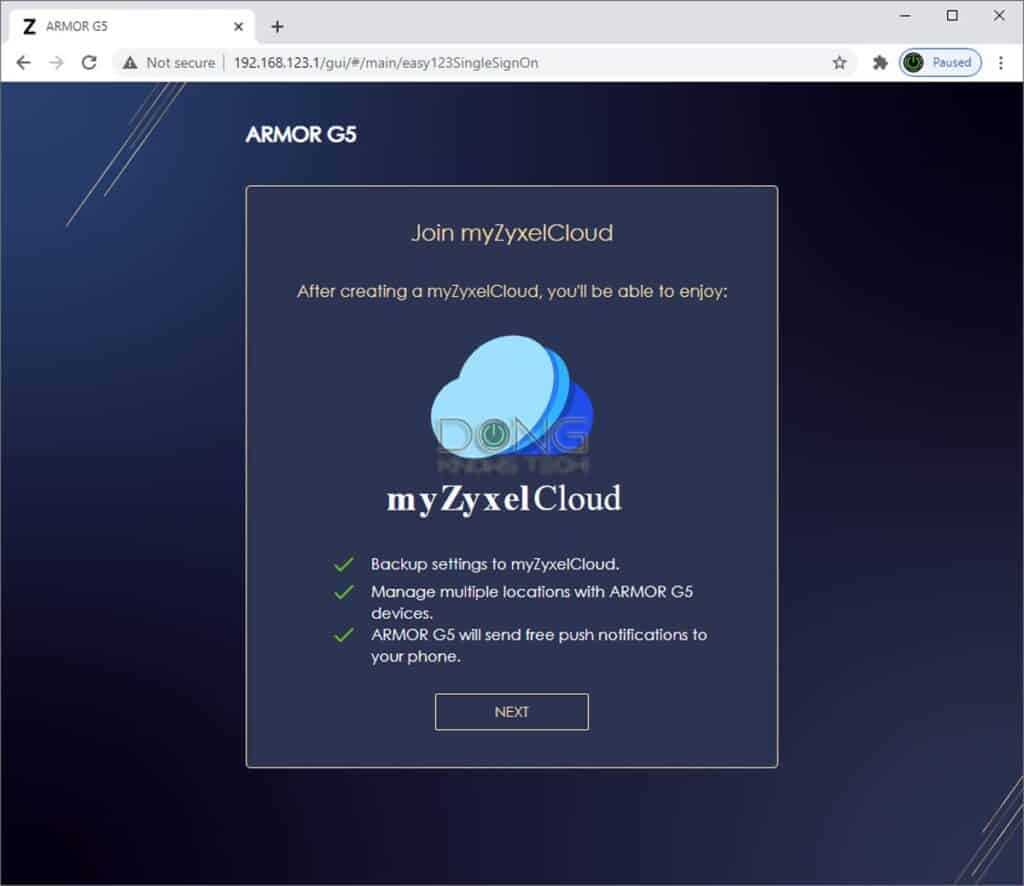
At first, as you can see from the screenshot above, I assumed that'd mean you could, later on, manage the router via mycloud.zyxel.com from anywhere in the world, but it didn't turn out to be the case.
When I logged in, the G5 wasn't attached to the account, and there seems to be no mobile app for it, either—more below. So maybe that was how Zyxel intended for the G5, but for some reason, it just didn't happen yet.
I did test the router before its official release date, but the company insisted that it was a final product.
Nonetheless, after creating an account—you can also use Google or Facebook account for that—I could log into the router's interface locally, just like the case of any standard router.
But yes, the requirement for the online account was pointless, at least in my experience. That's not necessarily a bad thing since that means there's no privacy risk.
Buggy
If that myZyxelCloud account issue above has any indication, that'd be the fact the G5 seems like a work in progress. Some areas can be buggy.
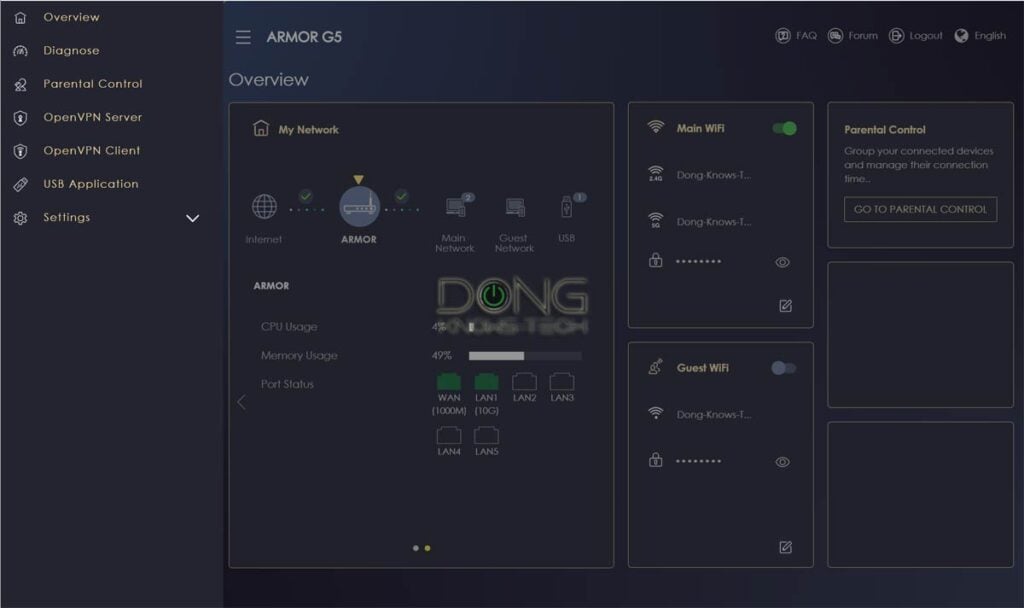
For example, the router seemed to have difficulty updating its firmware to the latest version. After a lengthy "updating" process, it restarted with the old version. I had to repeat the process 5 times for the update to go through.
Another issue the router's USB port didn't recognize most of my portable drives, and I have many of them. Sometimes it wouldn't even boot up successfully when with a drive connected.
It's worth noting that the router itself takes a long time to boot up—up to a few minutes, significantly longer than any other router I've tested.
Even with the drive that worked, I couldn't work on the storage feature for more than a few minutes before it appeared disconnected. It was quite frustrating.
Finally, the Zyxel Armor, which I assumed to be the router's app, is extremely buggy. It won't even launch on my Pixel 3 XL. All I saw was a message that reads, "The service is unreachable, please try again later." It's worth noting that Zyxel has many apps for home networking, and none worked in my trials.
Spartan feature set
Besides the buggy USB port, the Armor G5 also has VPN and Parental Control. The former can be helpful for those traveling frequently or who want their home part of a remote network.
The Parental Control feature proved to be misleading. That's because it's simply a feature that blocks access to the Internet to a (group of) connected clients based on a schedule. There's no way to block access to certain content types or a specific website. So it's not much of a parental control tool.
Other than that, the G5 doesn't have much else to offer. Despite having " Armor " in its name, it has no QoS, no game-related or online protection features.
As for common settings, the G5 includes a standard set. The router supports Dynamic DNS, IP reservation, and port forwarding. You can also choose to manage it via the Internet via remote management.
Zyxel Armor G5’s performance
In all, the Armor G5 seemed like a work in progress in my testing. But it did prove to be a good router where it matters: The Wi-Fi performance.
Fast and reliable Wi-Fi
Indeed, I tested it for over a week and had no issue with its Wi-Fi connections. Moreover, the router had about the same range as the Asus RT-AX82U, so if you live in a house of around 1,800 ft2 (167 m2), chances are it can cover every corner.
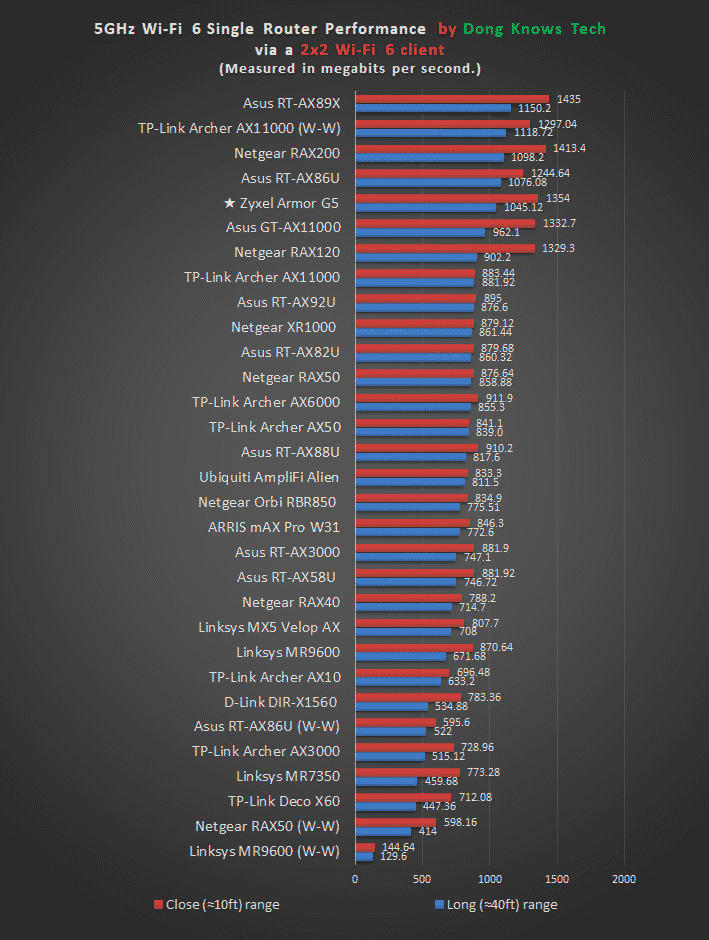
As for throughputs, the router supported the venerable 160 MHz channel width quite well, and my 2x2 Wi-Fi 6 clients could connect at 2.4Gbps at a close range. As a result, it proved to be quite a formidable contender among high-end Wi-Fi 6 routers.
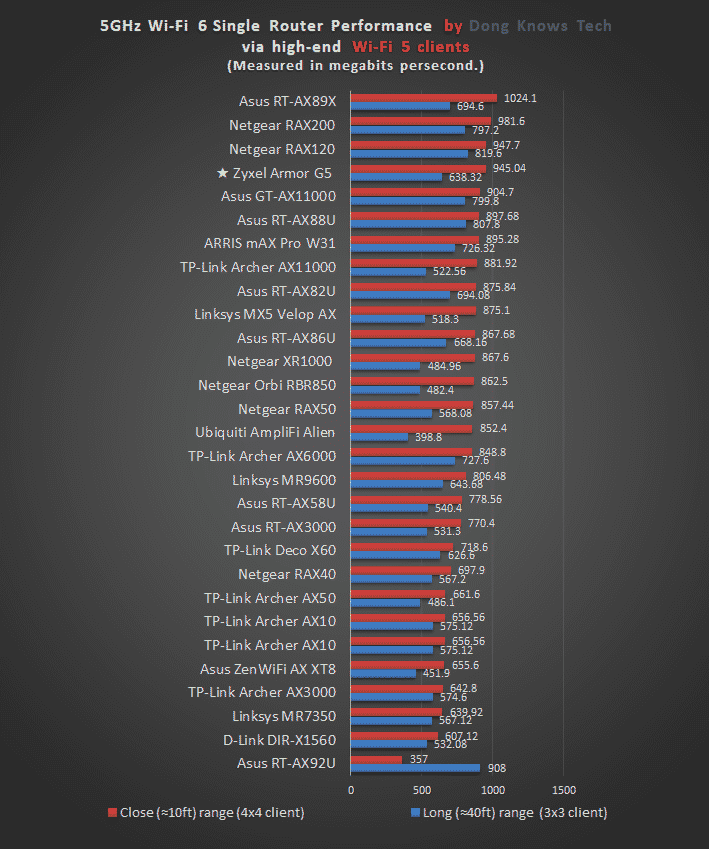
Thanks to the 10Gbps network port, the G5 is among those that can deliver faster-than-Gigabit wireless connections when working with high-end 5GHz clients. And it worked well with Wi-Fi 5 clients, too, as well as 2.4Ghz ones.
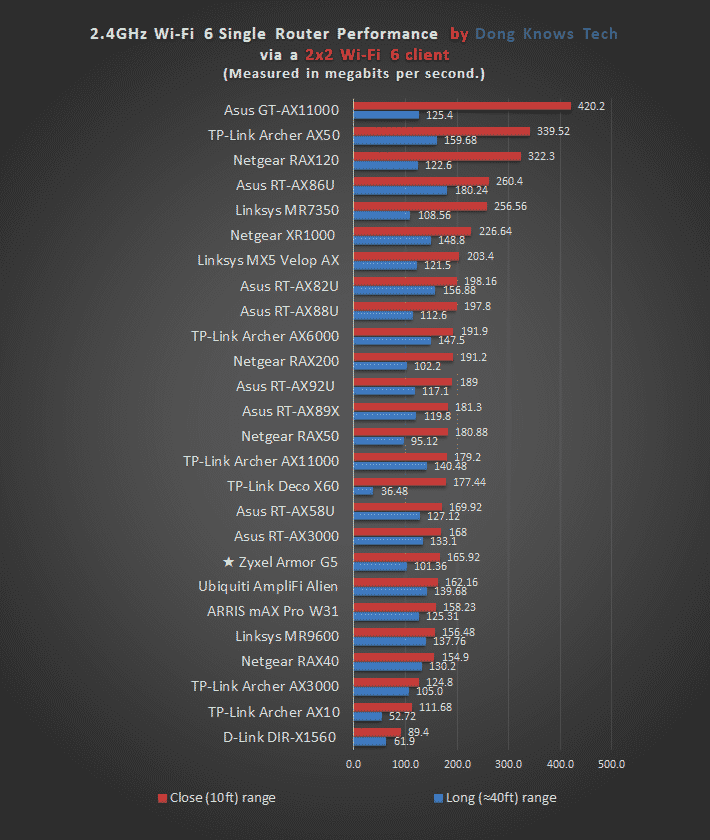
The Armor G5 did run quite hot in my testing. It wasn't hot enough to cause concern but sure was hotter than any other I've tested. It doesn't seem to have an internal fan, which might be part of the reason. It's recommended that you leave it in an open space, which you should do anyway for the best Wi-Fi performance.
No USB-related NAS for now
Due to the USB port issue mentioned above, I couldn't test the Armor G5's NAS feature thoroughly. The router never finished a test without the portable drive disconnecting midway. After a couple of days of trying different drives, I gave up. It was disappointing.
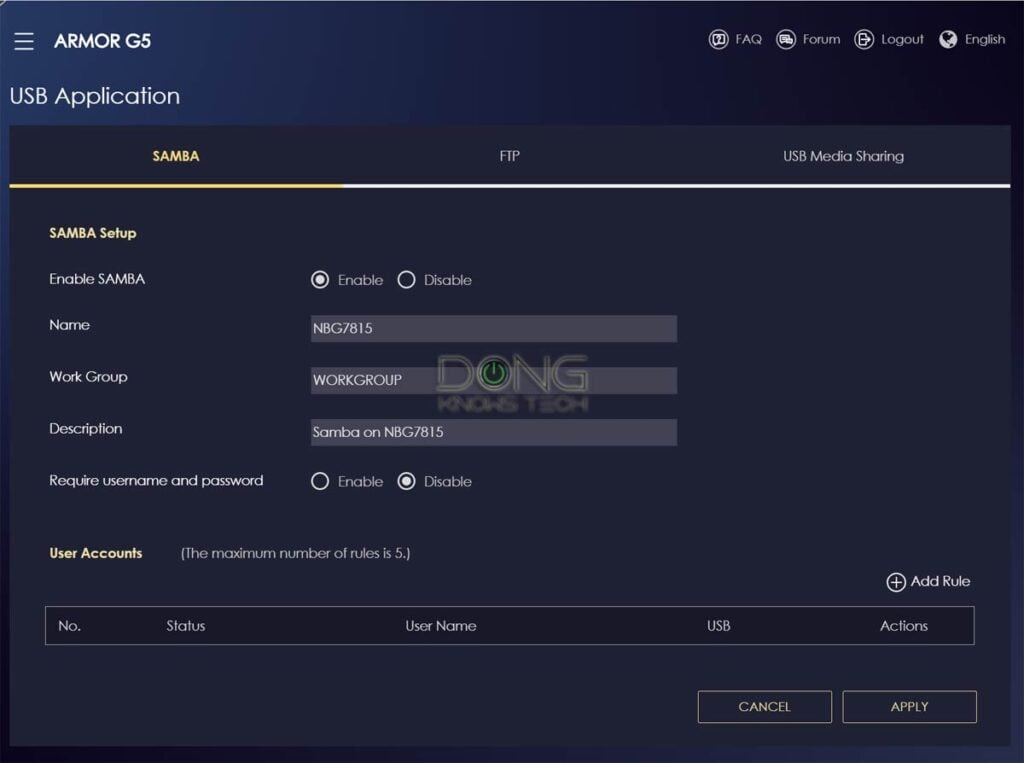
However, during these failed tests, it showed quite a fast write speed of some 150 MB/s via a 10Gbps wired connection. Hopefully, the router will get more stable via future firmware updates. Until then, it's a good idea not to count on its USB-based NAS feature.
Zyxel Armor G5's Rating

Pros
Fast Wi-Fi speeds
Two Multi-Gig network ports
Nice design
Cons
Overall buggy, especially the USB-related features
Severely lacking in features: Not mesh-ready, no Dual-WAN, no Link Aggregation, no QoS
Parental Control is a joke
Runs hot
Conclusion
Zyxel Armor G5 AX6000 12-Stream Multi-Gigabit Wi-Fi 6 Router is not ready for prime time. It proved to be a work in progress in my testing.
On the one hand, it has impressive hardware. On the other, the firmware is either too buggy or too lacking. So the router fails to deliver its full potential.
While G5 can still be an impressive Wi-Fi machine as is, it's a good idea to wait for a better firmware release before getting yourself one.
Though this new router may work out today—as long as you have an open space for it and then just set up the Wi-Fi network and leave the rest of the settings alone—there's no reason why you shouldn't check out these alternatives instead.

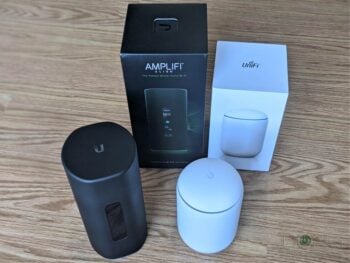
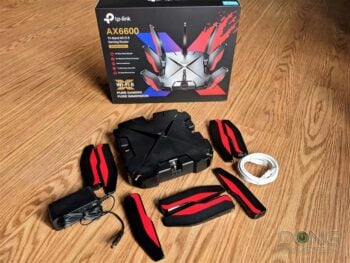
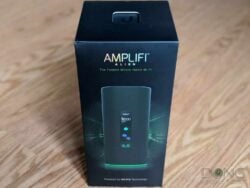
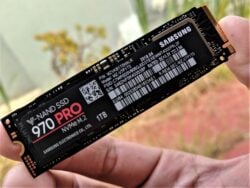


This router is soooooooo full of sh*t !
I don’t even want to start complaining …
No, it sure is not a good router as stated in the review. But it’ll work at the bare minimum default settings.
So sad … the hardware specs on this are good but the software ruins it.
$350 Qualcomm 12 stream. Good price tbh for internal hardware.
I assume 160mhz mode only works in 4×4 mode given the two 5054 chips.
The hardware only matters if the firmware supports it well, Jake.
Are you sure there is no internal fan in this router? The filings with the FCC do show an internal fan in the internal images as part of the filing.
I’m not super sure, Matt. But I tried to listen and there was no sound at all. Or maybe the fan was never triggered during my testing.